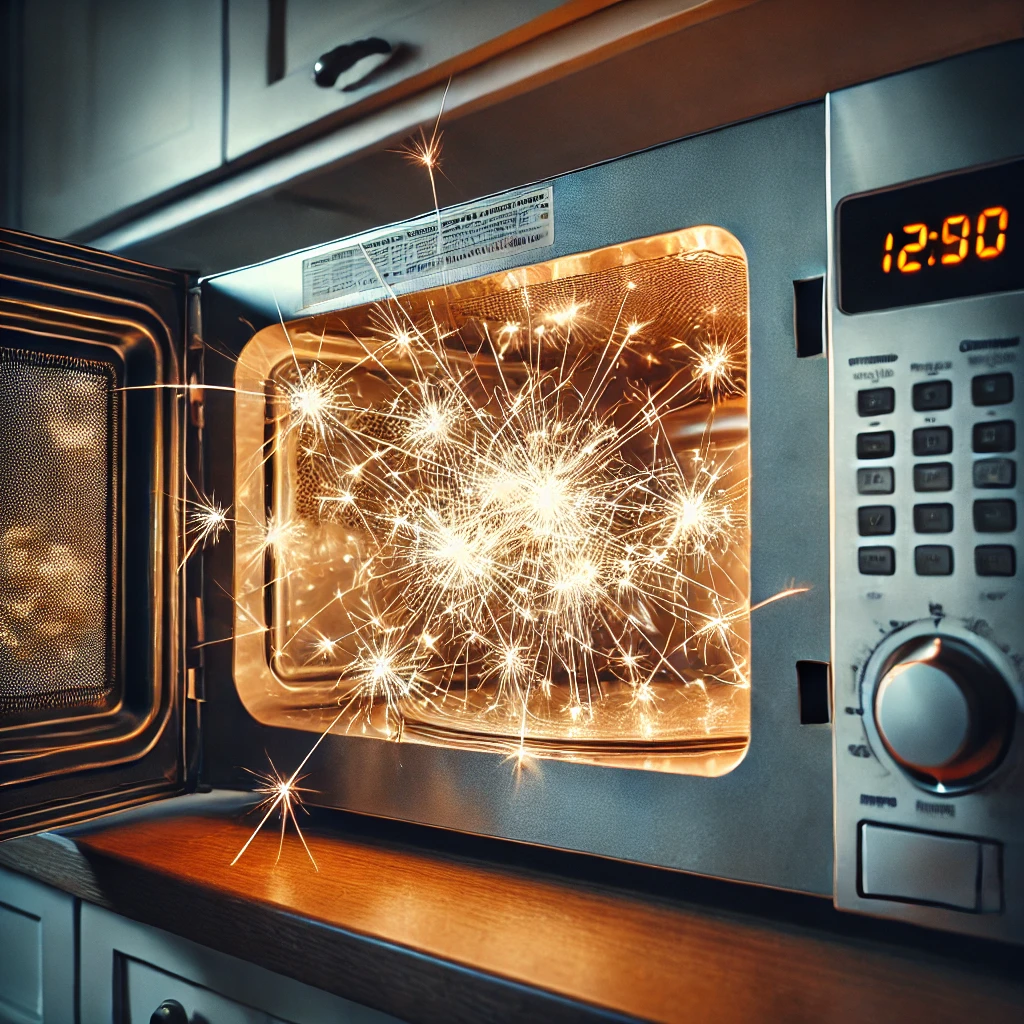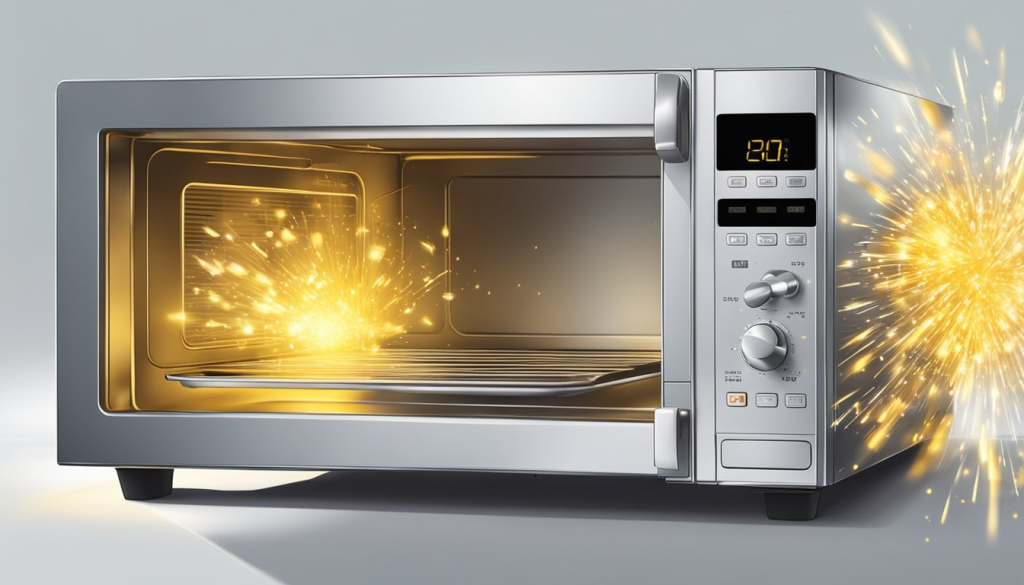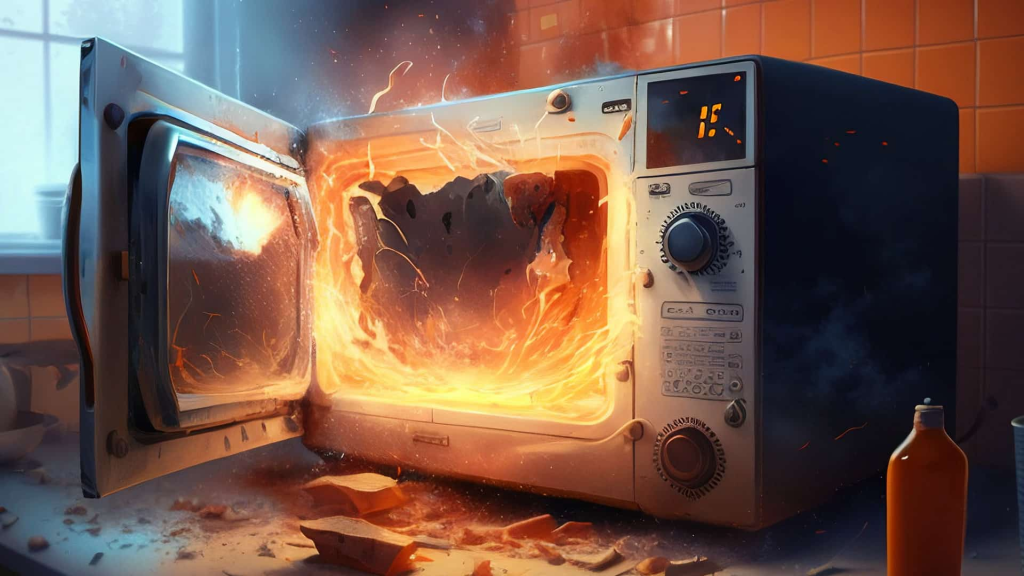Microwaves are an essential part of modern kitchens, offering quick and efficient ways to prepare meals. However, when your microwave starts sparking, it can be both alarming and confusing. Understanding the causes and solutions to this issue is essential for maintaining your appliance and keeping your kitchen safe. Let’s dive into the reasons behind microwave sparking, what you should do if it happens, and how to prevent it.
Common Reasons Your Microwave Sparks

Microwave sparking can occur for various reasons. Recognizing these causes can help you address the issue promptly.
Metal Objects Inside the Microwave
One of the most frequent causes of sparking is the presence of metal. Objects like aluminum foil, forgotten utensils, or plates with metallic trim can reflect microwaves, causing sparks. This not only disrupts the cooking process but can also damage your appliance.
Damage to Internal Components
Over time, key parts of the microwave, such as the waveguide cover or magnetron, can deteriorate. The waveguide cover, which directs microwaves, may become burned or damaged, leading to sparking. Similarly, a faulty magnetron can also cause issues.
Certain Foods Can Spark
Foods with high mineral content, such as spinach or carrots, can spark because the minerals act as tiny conductors. Grapes, in particular, are notorious for creating sparks. These sparks occur when minerals or moisture in the food react to the microwave’s energy.
Improper Containers
Using containers with metallic trim, paint, or materials not designed for microwave use can lead to sparking. These materials disrupt the microwaves and can create hazardous conditions.
What To Do If Your Microwave Sparks
If you notice sparks, follow these steps immediately to prevent damage or danger.
Turn Off the Microwave
The first thing to do is stop the microwave and unplug it. This prevents further sparking and ensures your safety.
Remove Any Metal Objects
Carefully inspect the interior and remove any metallic items, such as utensils or foil. Double-check plates or containers for metallic decorations.
Inspect for Damage
Check the waveguide cover for burns, cracks, or discoloration. Look at the door seals and interior for signs of wear. If you notice any damage, it may require replacement.
Verify Food and Containers
Ensure the food and containers inside the microwave are microwave-safe. Remove any items that may be causing the sparking.
When to Call a Professional

If sparking persists despite your inspection and adjustments, it’s time to contact a professional technician. They can diagnose and fix issues such as a damaged magnetron or waveguide cover. Attempting to use a malfunctioning microwave can pose significant risks, so professional assistance is crucial in these cases.
Preventing Microwave Sparking
Preventing sparking is all about proper usage and maintenance. Follow these tips to keep your microwave running safely and efficiently.
Always Use Microwave-Safe Items
Avoid using any containers with metallic trim or paint. Stick to items labeled as microwave-safe to ensure safe heating.
Keep the Microwave Clean
Food debris and residue can cause sparking when charred. Regularly clean the interior with a damp cloth and mild soap to remove buildup.
Inspect Regularly

Periodically check the waveguide cover, door seals, and interior for damage. Promptly replace worn-out components to prevent potential hazards.
Avoid High-Mineral Food
Be cautious with foods known to spark, such as spinach or grapes. Consider alternative cooking methods for these items.
Follow Manufacturer Guidelines
Read your microwave’s manual and follow the manufacturer’s recommendations for safe use and maintenance. This can prolong the life of your appliance and prevent unnecessary issues.
Conclusion: Keep Your Microwave Spark-Free
Microwave sparking may seem alarming, but in most cases, it’s a fixable problem. By understanding the common causes, such as metal objects, damaged components, or improper containers, you can address the issue quickly and safely. Regular maintenance and mindful usage are key to avoiding future problems.
If sparking occurs, don’t hesitate to stop the microwave, inspect for issues, and consult a professional when necessary. With proper care, your microwave will remain a reliable and efficient tool in your kitchen for years to come.


